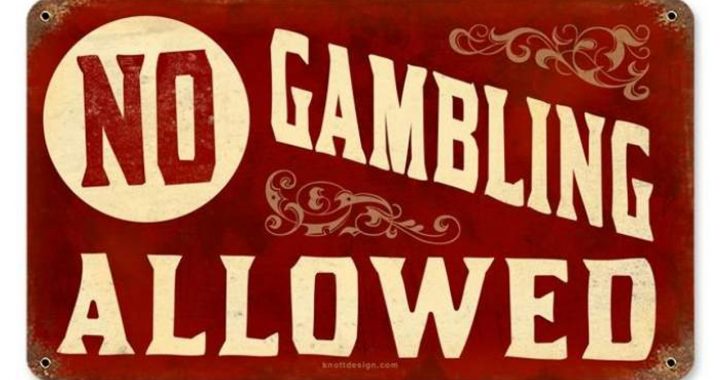“Widow’s Home at Dysart Is Searched: All Bound Over to Grand Jury”
Fifty years into the growth of this small town on the Iowa prairie, Dysart now boasts a population of just under one thousand people. Where once there was only open prairie, this railroad town has grown and thrived. It is a town made up of transplants, both American and and foreign-born. The people in the town have endured the world’s first global war. On an almost weekly basis the deaths of Tama County’s original white pioneers are recorded. New people arrive to try their hands at farming and industry while others leave for less developed lands and warmer climates. New homes and businesses are being added to those which were built back in 1873 when the town was brand new. It would be easy to think of this place as a perfectly tranquil painting and its inhabitants above those vices that make humans human but, of course, that is not the case and although the papers only occasionally report on crime, it still happens. Even here. Contributing to the increase in crime is prohibition. Iowa was one of the first states in the union to ban alcohol way back in 1916, four years before the rest of the country was made dry by the Volstead Act.
On Tuesday, December 4, 1923, acting on a tip, Tama County sheriff, W.C. Harrison, a deputy sheriff and the country’s attorney traveled from the county seat in Toledo to Dysart. Their goal was to raid the home of a local widow, Mrs. Mary Johnson, who it was rumored was running a gambling establishment.
During the raid, five men were found with “every indication of a game in progress” (6 or 7 decks of cards) and a small amount (a nip) of alcohol. All six were arrested and taken before Mayor Edward Wieben. The five men were charged with gambling. Mrs. Johnson’s charge was for keeping a gambling house. A boy named Robert Sutten, of LaPorte, was held as an important witness. The defendants waived preliminary hearings and were bound over to the grand jury. Two days later, on December 6, the grand jury made a partial report charging Mrs. Johnson with keeping a gambling house and the other men charged with gambling. Mrs. Johnson pled guilty and her sentencing was continued until the May term. She was released on December 7 on a $500 bond which she posted for herself.
Of the five men, three were local and were initially released on bond, two before being taken to jail and one, Bazz Jones, posted bond on December 7 after spending a few days in the county jail. The other men Karl Mohler and Troy Hayward who lived north of Dysart were released on bonds the night of the incident. The out-of-town men were Claud Barnhart of Waterloo, and Fred Hauser of Garrison. Barnhart was able to post bond immediately. The next day he posted the bond for his friend, Hauser. In the end Judge Willett fined the five men $50 plus costs and fine.
Reading the accounts of these arrests in a modern-day context, it is difficult to comprehend how so much could be made of some decks of cards and a small amount of alcohol but at the time, this was a big story and was covered in more than just the local papers. A careful reading shows that there was likely more at play than just the six people arrested that night. Several references were made that other “well known and prominent citizens” of the Dysart vicinity were implicated. Obtaining those names was clearly a goal for the sheriff. An ever bigger agenda was likely tracking down the moonshiners, the source of the alcohol.
The grand jury had taken a week to investigate the case more thoroughly and numerous citizens were implicated. Presumably these were anxious days in Dysart as its citizens wondered if they or their families members might be named. It would appear that in an effort to secure her release from jail rather than wait for her sentencing in May, Mrs. Johnson gave the court the names of several more Dysart residents who had been gambling at her house. On December 13, ten of these men were indicted and each paid a $50 fine. In addition to Mohler and Hayward who had already been fined these men were: Ray Filloon, Ralph Myers, W.L. (Shorty) Hollenbeck, Stanley Powell, Walter Clark, Roy Casey, Floyd Harmon, and William Ohde.
A clue that this case might have been more about alcohol than cards is found in the The Traer Star Clipper on December 14, 1923, which reads “It is understood that the grand jury has become disgusted with the perjurious testimony and forgetfulness of the witnesses in liquor cases especially when parties brought before the grand jury invariably testify that they purchased their liquor of strangers, or have forgotten whom they secured it. The former grand jury took special pains to cooperate with the county attorney in stopping this practice. On the same day as the additional men were charged, two men were charged with bootlegging. .
Gambling was not confined to the town of Dysart. On the 21st of December, the Traer Star Clipper stated “It need not be surmised that the only gambling going on in Tama County is in Dysart. Far from it. There is undoubtedly a great deal more of it in Tama than in Dysart and Traer is not free from it by a long shot. Dysart was simply unfortunate in being caught at it. Buy why stop with Dysart?”
